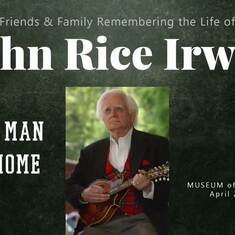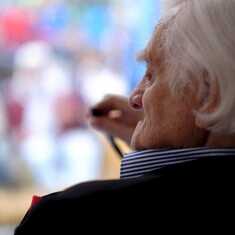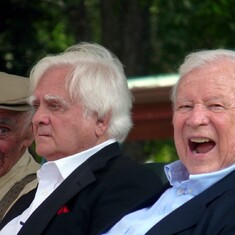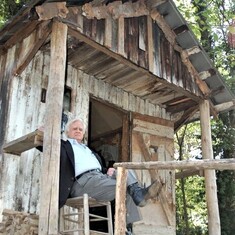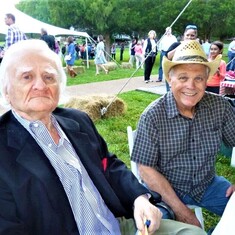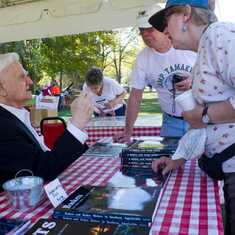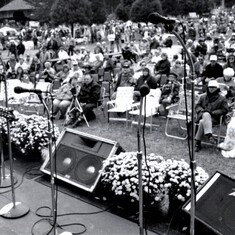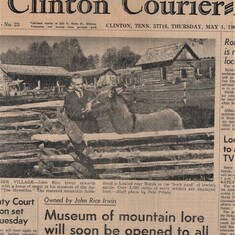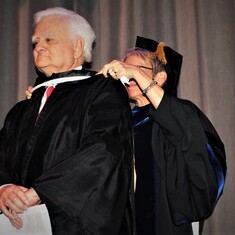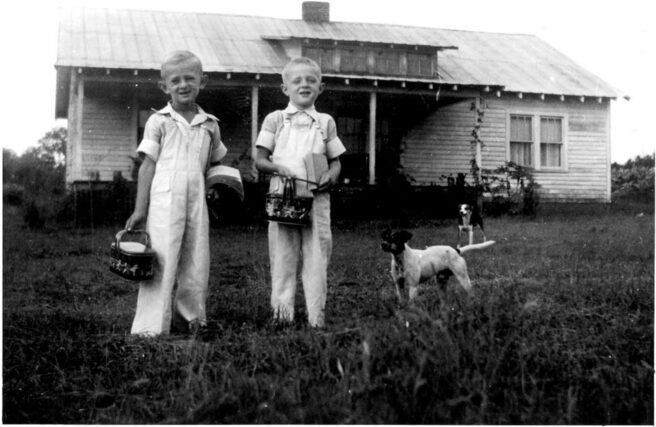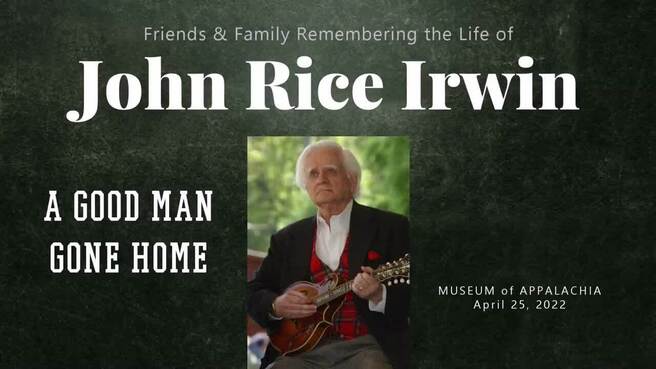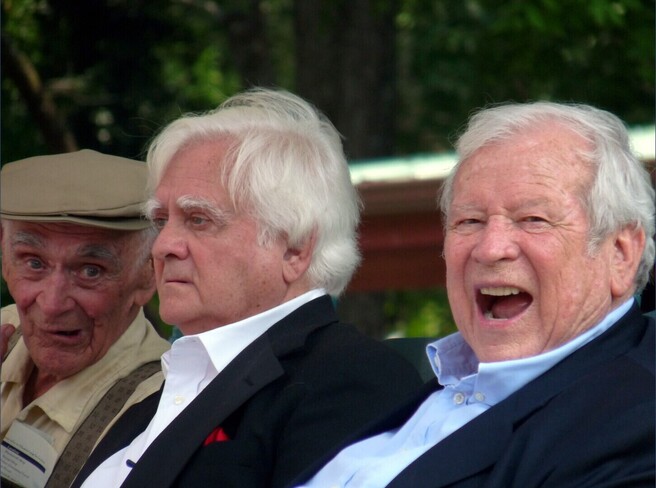While Irwin was still a toddler, his family was forced to move from their farm to make way for the flooding of Norris Lake and the construction of Norris Dam. They first settled in Robertsville, but the Manhattan Project forced them to move yet again, this time to the Bethel Community.
For as long as he could remember, Irwin was captivated by the rich cultural history of East Tennessee and its people. As a young boy, he would sit at the feet of his grandmother, Ibbie Jane Rice, and grandfather, Marcellus Moss “Sill” Rice, and listen intently to their stories of the past. Sill took notice of his grandson’s fascination and said to him, “you ought to keep the old-timey things that belonged to our people and start you a little museum sometime.” It was this advice that would ultimately inspire Irwin to create the Museum of Appalachia.
After graduating from high school, he served in the United States Army and was stationed in Germany during the Korean War. After his discharge, he returned to East Tennessee and used the G.I. Bill to continue his education, obtaining a bachelor’s degree in history from Lincoln Memorial University and later a master’s degree in international law from the University of Tennessee.
It was while attending Lincoln Memorial University that he met and later married Elizabeth McDaniel Irwin, a union that produced two daughters, first Karen, and then Elaine. John Rice and Elizabeth were married for 53 years until her passing in 2008.
Irwin taught for several years in both public schools and colleges, and in 1962, Irwin became the youngest superintendent of schools in the state when he was elected to the position in Anderson County at the age of 31. All the while, Irwin spent his free time traveling throughout the hills and hollers of Southern Appalachia collecting “old-timey things,” and more importantly, the stories behind them. Irwin bought a historic cabin and placed it on his family property in Norris. With extreme attention to detail, he tried to recreate what the cabin would have looked like when it was first built in 1898.
Before long, the Irwin family welcomed friends and visitors to view their unique collection. It became so popular that it interrupted the Irwin family’s daily life, so they began charging a nominal fee. The Museum officially opened in 1969 and would welcome some 600 visitors that year. Today, the Museum regularly greets tens of thousands of guests per year.
In 1980, Irwin retired from teaching and devoted all his time and effort to developing the Museum. With the help of his family, Irwin’s Museum would eventually grow to house 35 log structures, including the cabin of the Mark Twain Family, plus three large exhibit buildings that house tens of thousands of Appalachian artifacts. Irwin also hosted special events at the Museum, including Tennessee Fall Homecoming—a music and heritage festival that enjoyed a nearly 40-year run.
It was during the 1980s that the Museum exploded in popularity, largely due to the promotion and praise of notable Tennesseans like then-Governor Lamar Alexander and writer Alex Haley.
After visiting, Haley purchased a farm across the street from the Museum and spent the rest of his life singing its praises.
In 1989, Irwin won a MacArthur Foundation fellowship, which he used to build the Museum’s Hall of Fame. He received a variety of awards throughout his career, including honorary doctorates from Lincoln Memorial University, Carson Newman University, and Tusculum University.
Irwin published numerous books on tenets of Appalachian life, including baskets, guns, quilts, and music. A 20-year friendship with a remarkable Tennessee mountain character led to the publishing of his most popular work, Alex Stewart: Portrait of a Pioneer.
Irwin operated the Museum until it was converted to a 501(c)3 nonprofit organization in 2003. He served in an advisory role for the next decade, during which the Museum achieved recognition as a Smithsonian Affiliate.
When asked about his friend’s passing, Lamar Alexander said, “John Rice Irwin displayed Appalachian pioneer history in a way that no one else ever has. His tens of thousands of items in the Museum of Appalachia remind us that we don’t have to go outside our own backyards to find interesting people. For sixty years he stayed up late into the night writing books and matching artifacts with stories so that we could better understand who we are. He taught us about ancestors who made or grew things instead of buying them. He was an engaging genius and a generous friend. Honey and I will miss him greatly.”
Irwin was preceded in death by his father, Glenn G. Irwin, mother, Ruth Rice Irwin, wife Elizabeth Ann McDaniel Irwin, daughter, Karen Ann Irwin Erickson, and nephew Robert David Irwin. Survivors include his daughter, Elaine Irwin Meyer, and husband Edward William Meyer III, his loving brother David and wife Carolyn, and his three grandchildren, Maia Lindsey Gallaher and husband Jason Gallaher, John Rice Irwin Meyer and wife Sara Meyer, and Edward William Meyer IV. He was also blessed with 5 great-grandchildren, Rese, Avery, Meyer, Landry, and Parker. He is also survived by a plethora of relatives, including niece Anne Irwin Buhl and grandniece Katherine Buhl.
Irwin dedicated his life to preserving the rich heritage of the people of Southern Appalachia, and nothing would please him more than for that preservation to continue for generations to come.


